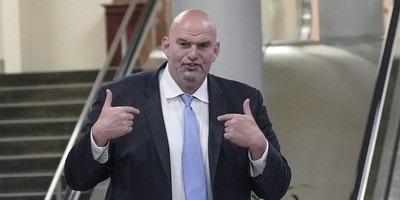Congress tells executive branch agencies how much money they can spend and how they should spend it. Sometimes the instructions are broad, and sometimes they are quite detailed. Cabinet secretaries and lower-downs are bound to work within those congressional directives.
But if Cabinet officers want to spend the money differently, there is a long-established process for doing so: They ask Congress for permission. It happens all the time, with lawmakers routinely giving the executive branch the OK to spend money in different ways than originally planned.
That could be happening now. All those Obama administration officials complaining about across-the-board cuts dictated by sequestration could come up with plans to make the same amount of cuts in ways that would create fewer problems for federal workers and services. Then they could ask Congress for permission to do so. Lawmakers would say yes, and things would be fine.
But it's not happening. And the fault is not with Congress.
In recent weeks, House Republicans have been virtually begging administration officials to ask for permission to move money around. If one program could be more easily cut than others, those Republicans say, just ask us, and we'll let you do it.
"We sent out on Feb. 28 a letter to every Cabinet officer asking them what changes they'd like to have -- pluses, subtractions and so on -- to give them an opportunity to show us at least one program they would like to have cut, which would then save on sequestration," Rep. Darrell Issa, chairman of the House Committee on Oversight and Government Reform, said in an interview recently. "We did not receive a single answer."
Recommended
Issa explained that Congress can allow Cabinet officials to "reprogram" money to ease the burden of sequestration. For example, the sequester requires the Department of Transportation to cut $2 billion from its budget.
"If they were to come up with, for example, $500 million in cuts, their remaining sequestration would drop by 25 percent," Issa said. "If they were able to come up with $2 billion worth of things they wanted to drop altogether or reduce, then they would have no sequestration."
In other words, Obama Cabinet officials, if they chose, could have an enormous amount of flexibility in making the required budget cuts. They just don't want to. "We've had zero answers," repeated Issa.
At a recent committee hearing, Rep. Jim Jordan asked officials from the Transportation and Education departments a simple question. Since they've known about sequestration for a long time and also know they have the ability to ask Congress to reprogram money, why haven't they responded to Issa's letter offering help?
The officials had no answers. "Those wheels are turning," said the man from the Education Department, indicating that, whatever crisis sequestration presents, the bureaucracy will take its time to respond.
It turned out that the officials had done little or no preparing for sequestration and instead focused on drastic measures -- things like closing down one of the two air traffic control towers at Chicago's O'Hare International Airport -- to deal with it.
"I would think that most public servants would want to do what's in the best interest of the taxpayers and the public, and not try to do things for political gain," Jordan said in an interview later. "But let's be honest. Some of the statements we've heard from the administration run counter to what we hope public officials would do."
In the meantime, the administration continues to advertise new job openings for decidedly nonessential positions. (For example, why is the Federal Aviation Administration looking for a couple of "community planners"?) "What's going on is total tone-deafness from the administration," says one frustrated Senate GOP aide. "They are posting for new, low-priority jobs while announcing furloughs. If they have money to make new hires, why not use those funds to prevent furloughs? It's absurd."
Sequestration is still in its early stages. There is still time for the Obama administration to have a change of heart and try to enact cuts in the least dramatic, least obtrusive way. Certainly, Rep. Issa remains ready to go. Congress can move very quickly on something like this, he said, making an open offer to the administration: "If you find programs that you can cut altogether or programs that you can combine, the authority for it would be only hours away."

























Join the conversation as a VIP Member